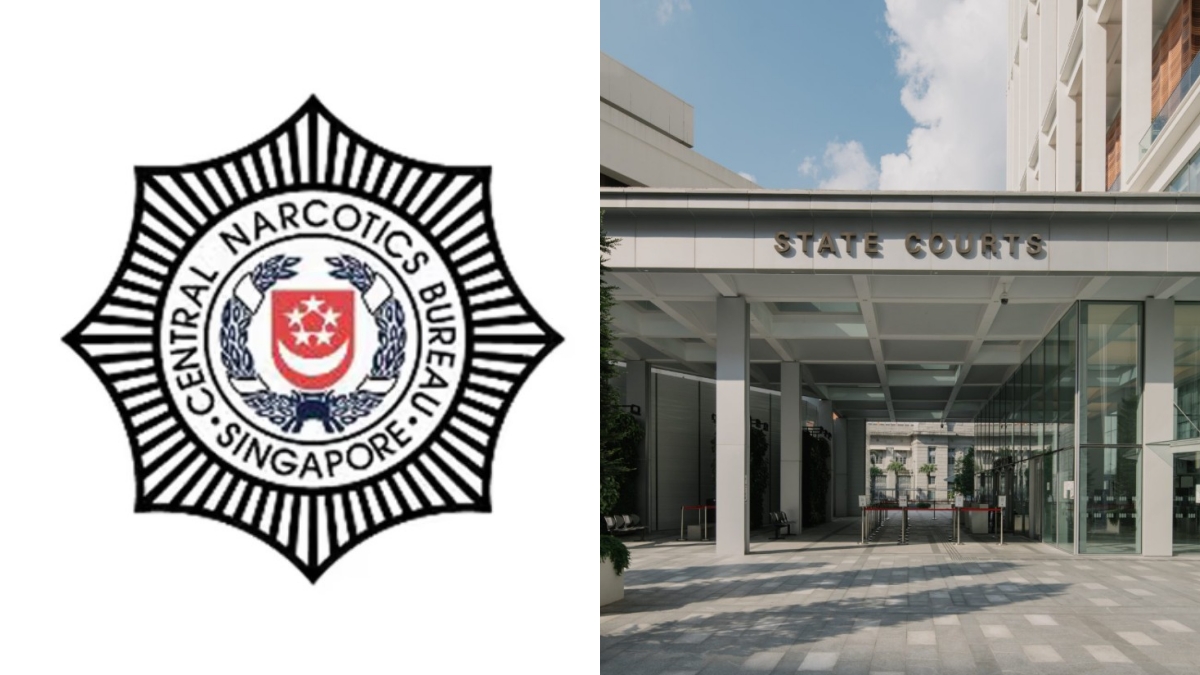Former CNB officer jailed 13 months for misappropriating nearly S$1,300 and forging documents
A former CNB officer has been jailed 13 months for misappropriating nearly S$1,300 in seized cash from two men and forging documents to cover it up. The misconduct was uncovered after a complaint, leading to his arrest and resignation in 2024.

A former investigation officer with the Central Narcotics Bureau (CNB), Muhammad Fayyaz Helmi, has been sentenced to 13 months’ imprisonment for misappropriating seized cash from arrested individuals and forging documents to conceal his actions.
The 29-year-old pleaded guilty to one count each of criminal breach of trust as a public servant, forgery for the purpose of cheating, and obstructing justice. Four additional charges were taken into consideration during sentencing on 14 November 2025.
The offences, committed between 2023 and 2024, involved two victims who had their money seized during CNB investigations.
According to local media reports, Fayyaz misappropriated a total of S$1,276.86, using the funds for personal expenses.
Fayyaz was one of the officers assigned to the case of Thanabal A Vathian, 72, who was arrested in April 2022 on suspicion of drug offences. Two mobile phones and S$912.66 were seized from him. He was later admitted to a Drug Rehabilitation Centre and subsequently placed in a halfway house.
In November 2023, Fayyaz used the seized cash for personal daily expenses. When returning the mobile phones on 9 January 2024, he falsely claimed that another officer had handled the cash and promised to locate it. Thanabal later informed the chairman of his halfway house, who raised the matter with CNB.
According to Straits Times, Fayyaz subsequently gave S$950 to Thanabal and forged a CNB acknowledgement form to reflect a fabricated figure of S$913.20 as having been returned on 9 January.
In a second case, Fayyaz was responsible for returning seized items to 27-year-old Hasbullah Mohamed Hizan in January 2024. These included S$364.20 in cash, which he also misappropriated. He forged an acknowledgement form with Hasbullah’s personal details and forged signature to indicate the return of items.
In March 2024, after another CNB officer discovered discrepancies, Fayyaz transferred S$400 to Hasbullah to cover the misappropriated sum. On 1 April 2024, he instructed Hasbullah to falsely state that his seized belongings had been returned on 17 January, and not to reveal that the items had in fact not been returned.
A police report was lodged by a fellow CNB officer on 5 April 2024, and Fayyaz was arrested the same day. He resigned from CNB in May 2024.
According to CNA, a CNB spokesperson said the bureau had uncovered Fayyaz’s misconduct in 2024 after acting on a complaint and immediately reported the matter to the police. Additional investigations found that Fayyaz had failed to return property on two other occasions, which CNB also reported.
“CNB has a code of conduct, strict orders and proper procedures in place, and officers have to abide by them to uphold CNB’s high standard of professionalism,” the spokesperson said.
“Reporting and disciplinary processes are put in place to ensure proper conduct of officers in the workplace and when carrying out their duties. Any officer who falls short of these standards will be taken to task, and those who break the law will be dealt with, in accordance with the law,” the spokesperson added.
In mitigation, Fayyaz’s lawyer, Jonathan Wong from Tembusu Law, said his client’s offences occurred during a period of “progressive emotional decline” tied to work stress and his transfer to a team handling exhibits, which he perceived as a career setback.
Fayyaz began gambling habitually during this time and developed an addiction. He eventually accumulated debts of S$70,000 to S$80,000, owed across banks and licensed moneylenders. His lawyer described the offences as occurring in a state of “vulnerability and impaired coping,” not out of greed.
“He accepts fully that these acts were intentional and constituted a serious breach of trust,” Wong said. Fayyaz has since stopped gambling, is undergoing credit counselling, and now works as a delivery driver.
Under Singapore law, criminal breach of trust by a public servant carries a penalty of up to 20 years’ imprisonment and a fine. Forgery for the purpose of cheating carries up to 10 years’ imprisonment and a fine.










